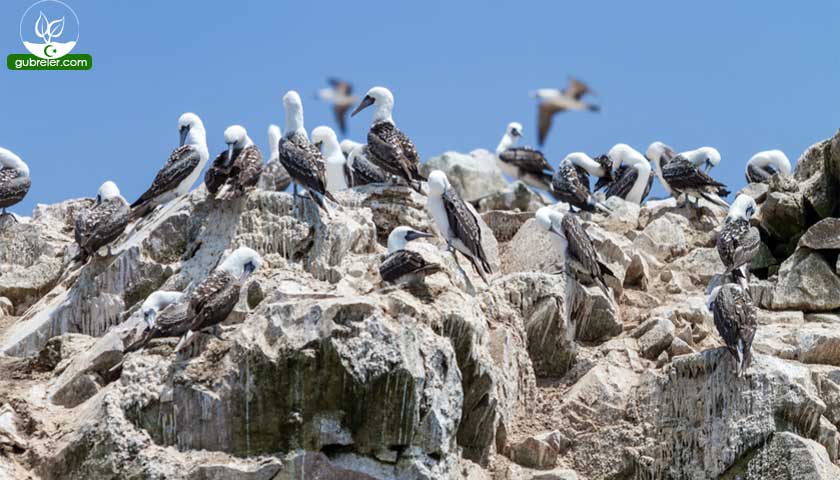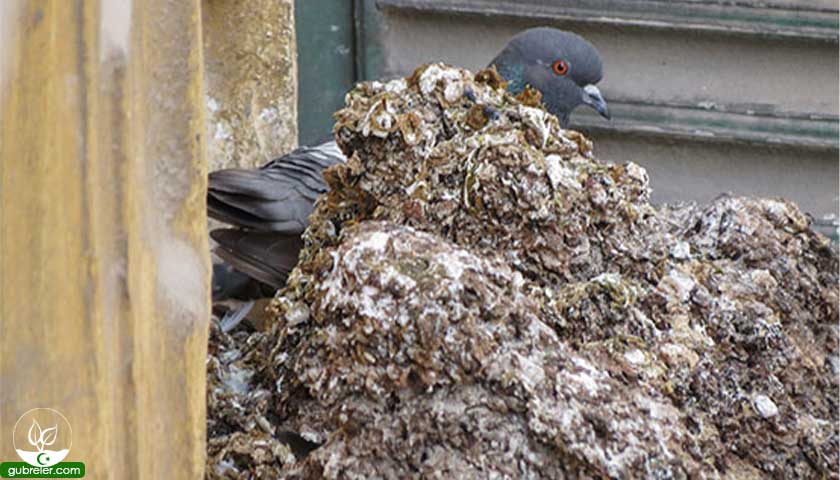Guano
Guano, bitkilerin sağlıklı büyümesini teşvik eden, daha lezzetli ve daha yoğun kokulu bitkiler elde etmenizi sağlayan besleyici ve zengin değerli gübredir.
Guano, esasen penguen ya da karabatak gibi deniz kuşlarının dışkılarından oluşan bir madde. 19. yüzyılda tarımda çok popüler olan bir gübredir.
Kökeninin doğal ve organik olmasına rağmen tarımsal üretimde kullanılan ilk suni gübrelerden kabul edilir. 1840dan sonra Justus von Liebig’in teşvikleri ile kesin olarak kullanıma geçmiştir. Doğal güherçilenin yanında guano patlayıcı madde imalatında kullanılmıştır.
Özellikle Güney Amerika’nın batı sahilleri açıklarındaki adalarda rastlanan deniz kuşlarının dışkılarından oluşan kalın tabaka. Fosfat ve azot bakımından zengin olup değerli bir gübredir. Guanonun kalınlığı 10 metreye kadar ulaşabildiğinden ticari önemi büyük olmuştur. Gübre olarak kullanılması, 19. yüzyılın başlarına rastlar. Yapay gübrelerin daha ucuza maledilmesi guanonun kullanımını azaltmıştır.
Guano – english
Guano (Spanish from Quechua: wanu) is the accumulated excrement of seabirds and bats. As a manure, guano is a highly effective fertilizer due to its exceptionally high content of nitrogen, phosphate, and potassium: key nutrients essential for plant growth. Guano was also, to a lesser extent, sought for the production of gunpowder and other explosive materials.
The 19th-century guano trade played a pivotal role in the development of modern input-intensive farming, but its demand began to decline after the discovery of the Haber–Bosch process of nitrogen fixing led to the production of synthetic fertilizers. The demand for guano spurred the human colonization of remote bird islands in many parts of the world, resulting in some of the first examples of U.S. colonialism and the expansion of the British Empire.
The guano mining process resulted in ecological degradation through the loss of millions of seabirds. Unsustainable guano mining in caves alters cave shape, causing bats to abandon the roost. Guano mining also involved the poor treatment and enslavement of workers such as Chinese immigrants, Native Hawaiians, and African diaspora.
Guano is ecologically important due to its role in dispersing nutrients. Cave ecosystems, in particular, are often wholly dependent on bats to provide nutrients via their guano, which supports bacteria, fungi, invertebrates, and vertebrates. The loss of bats from a cave can result in the extinction of species that rely on their guano. Guano also has a role in shaping caves, as its high acidity results in erosion. (Vikipedia)




